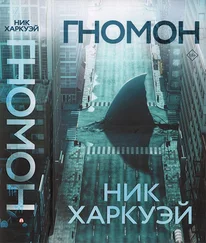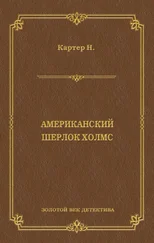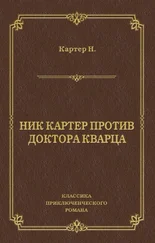At the next crossroads he chose the harbour road, aiming in part for the scrivener’s shop. Breanne would have gone there, he suspected, if she could. He would go past, see if they were all right. He could offer to put them up at Brighton House. He pulled out his cellphone, slapped the battery in and called the boy, got a synthesised female voice telling him the person he was calling was not available. He left a message: ‘I’m in the car. Beauville’s gone to shit. If you need me, call or go to the house. Bring whoever you want,’ he added after a moment, thinking of the elusive guardian. ‘There’s room for quite a few.’ He wondered if he would come back to find a horde of street children or a family of twenty seeking refuge in what was still technically consular accommodation, and what diplomatic shit that might kick off.
Towards the seafront, where the buildings were closer together, the fires faded as if the riot was saving the best for last. An ugly calm lay over the streets like the anticipation of a beating. Away from the source, the Sergeant heard the sound of the mob as he had from up on the hill, a kind of birdlike laughter on the wind. He realised too that he had been driving through fouled air, that there was ash in his snot, clogging his nostrils with black slime. He blew his nose, then cleared his throat and almost vomited, jerking to open the window and spit nauseating burned rubber stink onto the street. He sluiced water from a bottle in the back seat into his mouth, partially inhaled it and snorted it out, then abandoned his handkerchief to the gutter. And now, standing outside the car, he could smell something else, a grim mix of animal and hair. He looked around and about, then caught it again. That way.
He got back behind the wheel and rolled the Land Rover slowly forward. Let it not be a person , he thought. Let it be a fox or a cow. I don’t really care. But not a person and not anyone I know . And then he felt, when he saw it, that he had brought this on himself, that he had conjured it.
Spartacus . He couldn’t remember the name of the general who had ordered it and that pleased him, but he recalled the rest. Westcott had talked about it endlessly, the moment when savagery had transformed the wobbling Roman Republic into an enduring empire: security at the price of freedom. When Spartacus’s rebellion was defeated, the Via Appia was lined with six thousand crucified slaves as a warning to the world.
From each of the telegraph poles on the road leading down to the waterfront dangled the corpse of a dog, front paws nailed to a coarse crosspiece ripped from a packing crate. Not six thousand. Not even a hundred. But still a manifest monstrosity and an earnest of more.
He got back into the Land Rover, hating the world.
The Portmaster’s office was shuttered, heavy steel blinds chained to the concrete pediment, and the waterfront was almost deserted. The lobstermen had taken their boats to more amenable moorings and the lines of storage shacks along the docks gaped open, corrugated-iron walls bare and so rudimentary that burning them was an empty gesture. Twenty minutes with a hammer and a few bits of wood and the same metal would be in the same position, if anyone cared.
The scrivener’s shingle hung halfway along the waterfront, a single lantern glowing dimly beside the papal writ. The windows were dark, but they always were. White Raoul never drew the curtains. His den was a mystery, a magician’s cave. All along the road was rubble and splatter, dark stains which might be blood, and others – paint, booze, water and piss. This was a battlefield, sure as any Lester Ferris had ever seen.
Rolling the Land Rover onward, the Sergeant was starkly aware of how wide and exposed the promenade was, like a medieval killing ground. He had been driving without lights anyway, and now he stared out into the night, cursing the limits of his eyes and wishing for night vision goggles, for a partner to watch his back. And where was the boy, anyway? The Sergeant tried not to think of him running with the pack, putting Beauville to the torch and screaming like a madman, but if he wasn’t doing that then he might be in trouble, be hiding, be burned. He didn’t seem the type, but no one ever did. This kind of thing came from nowhere and washed you away; it was elemental. Or had that strange parent come for him, whisked him off to some mountainside for safekeeping, and was he even now looking down on the orange pall and wondering where in all that stink and flame was his friend the Sergeant? But if this last, he had only to pick up his phone messages and respond.
Call me. Is that so much to ask?
The Land Rover crunched over something brittle, a vase or a bottle. The noise was shockingly loud and made him jump. He lurched the car one way and then the other to throw off the first shot from a sniper’s rifle in case that same sound excited a response in some lethal watcher on the rooftops, feeling sure there was no sniper, not here, but doing it anyway because you did, you followed your instincts and asked why later, or sooner or later you paid for it.
An improvised explosive device, now. He wouldn’t rule out something like that here, not tonight. A big drum of diesel oil lifted from the harbour. What a fine blaze that would make, if a fellow knew how to rig it – and no doubt some did.
The car jiggled again, this time riding over a long piece of hosepipe. No, not a hose: a cable, and fat as a man’s arm. He stared at it, following the long spaghetti line around in a wide spiral and down to the edge of the water. It was draped in seaweed and muck. In fact… Yes, it was the cable TV connection to the Black Fleet, he realised, ripped up and severed, and for the first time he felt a sense of sympathy with the marauders. Let the Fleet feel something, even if it was just having to fall back on DVDs and movies on highly covert iPads and laptops.
He drove on, feeling the cable squirm under his tyres, and stopped outside the scrivener’s door. He debated whether to hoot, whether to leave the engine running in case he needed to make an escape. But didn’t want to lose the car to some wandering sneak, so he took the keys and went to the door.
She opened it before he could knock. ‘I’m okay.’
He breathed out slowly. ‘I was hoping.’
She didn’t ask how he knew to look for her here. Well, he was supposed to be a detective, and perhaps everyone had known except him. Gossip was like that.
‘Have you seen the boy?’ he asked.
‘No.’ And he saw her face mirror his own worry: If he’s not with me and he’s not with you, then where? But at least she was not the boy’s mother, that was something. The world she could offer was so big. He could not compete with that, wouldn’t try. Johns Hopkins. Ivy League schools. A woman who could open doors. That would be a fine place for the boy. Just not his boy, any more. But it seemed he was spared that moment. He felt a guilty triumph.
‘Your house…’ he began, but she raised a hand.
‘I know. I heard. But it’s fine. You know, it’s just stuff. My clarinet, I suppose, I’ve had it for years, but in the end it’s a thing. It’s not like a violin, like a Stradivarius. Just a decent Yamaha, I can get one on eBay and it’ll be exactly the same. It’s just stuff,’ she said again, and with the repetition it seemed to hurt her a little less. People she had known, probably, had come and destroyed all that they could reach of what she owned. That and her garden, he suspected, hurt more than the material things. She wasn’t a soldier, used to showing up and being shot at.
He cast about, wondering how she would regain her sense of the world. Not by hitting someone or shooting at them, obviously. Not by arresting them. She would want to reconnect, to help. He pursed his lips. ‘I can tell Kershaw to sort out a medicine bag for you, if you like.’
Читать дальше
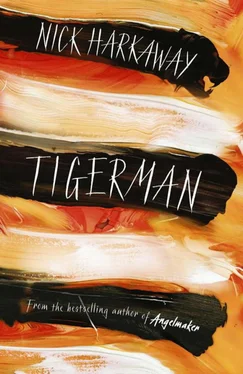
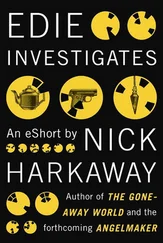
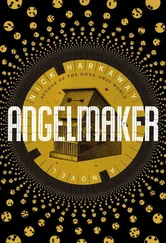
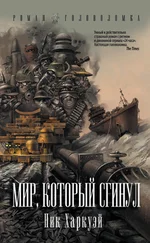


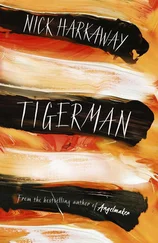
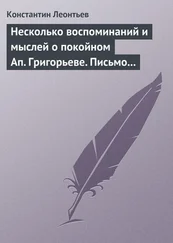
![Ник Харкуэй - Гномон [litres]](/books/400023/nik-harkuej-gnomon-litres-thumb.webp)
